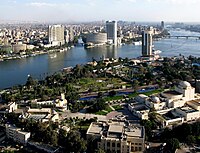As we are exposed to the raw feeds of information in our interconnected world, we are increasingly forced to a much greater degree of editorial responsibility than was previously the case. We need to filter what it is we're seeing and hearing, what we're being told. As mainstream media outlets struggle to keep up with the need to beat 'real time', we see that not only do 'context and analysis' frequently suffer, but also the movement of information is also prone to network effects.
Worryingly, if a newspaper, say The Guardian as an example, publishes a story with a duff fact or premise and you manage to get that story corrected, it's too late. Because fifty other outlets have picked up The Guardian's story and happily repeated it. In the inexorable march to harvest clicks, the most dramatic and counter-intuitive stories are snapped up and media outlets are happy cannibals. Your chances of getting that genie back into the bottle are pretty much zilch.
We're not - despite the overwhelming evidence to the contrary - stupid, us humans. We've quickly worked out that this network effect can be used to great benefit. If we're first out with something nice and dramatic sounding, by the time anyone gets around to saying, 'Wait, wat?' the world's already chowing down on our spurious claims. Think Trump.
Even Google is now experimenting with fact checking features, adding fact checking links to news search results.
Now we take all that stuff and we squeeze it into the oddly shaped bottle that is the Middle East, where media have long been cowed and access to unfettered opinion and anything else generally regarded as 'dangerous' for our social well-being and morality has been repressed. This has arguably resulted in societies which lack the practice in questioning and critical faculties to handle the sudden cornucopia which social media and the real time news cycle have unleashed.
We have already seen how the initial reaction to this bounty resulted in tectonic change in the region, I have argued before that Occupy Wall Street started in Lebanon. But if we look at where we are today and at the challenges of understanding and processing all of this information, we can not only see the problematic aspects, but also the opportunities this stuff represents.
It is those very opportunities which have driven veteran journalist, founder of AUB's journalism training program and all-round journalism trainer Magda Abu-Fadil, together with fellow editors Jordi Torrent & Alton Grizzle to produce Opportunities for Media and Information Literacy in the Middle East and North Africa, a report (actually the 2016 Yearbook from the International Clearinghouse on Children, Youth and Media) which highlights the need to teach information literacy in the region's schools. The report makes fascinating reading for anyone who cares about media, the flow of information within society and the need to enhance the critical faculties of a young generation brought into a world where the dizzying flow of fact and fallacy can sometimes threaten to sweep us away.
What I like about it is that the report doesn't sit on its hands and bemoan the parlous state of things, but makes concrete recommendations for positive social change which can be relatively simply and effectively implemented. The time, as the report notes, has never been so propitious...





